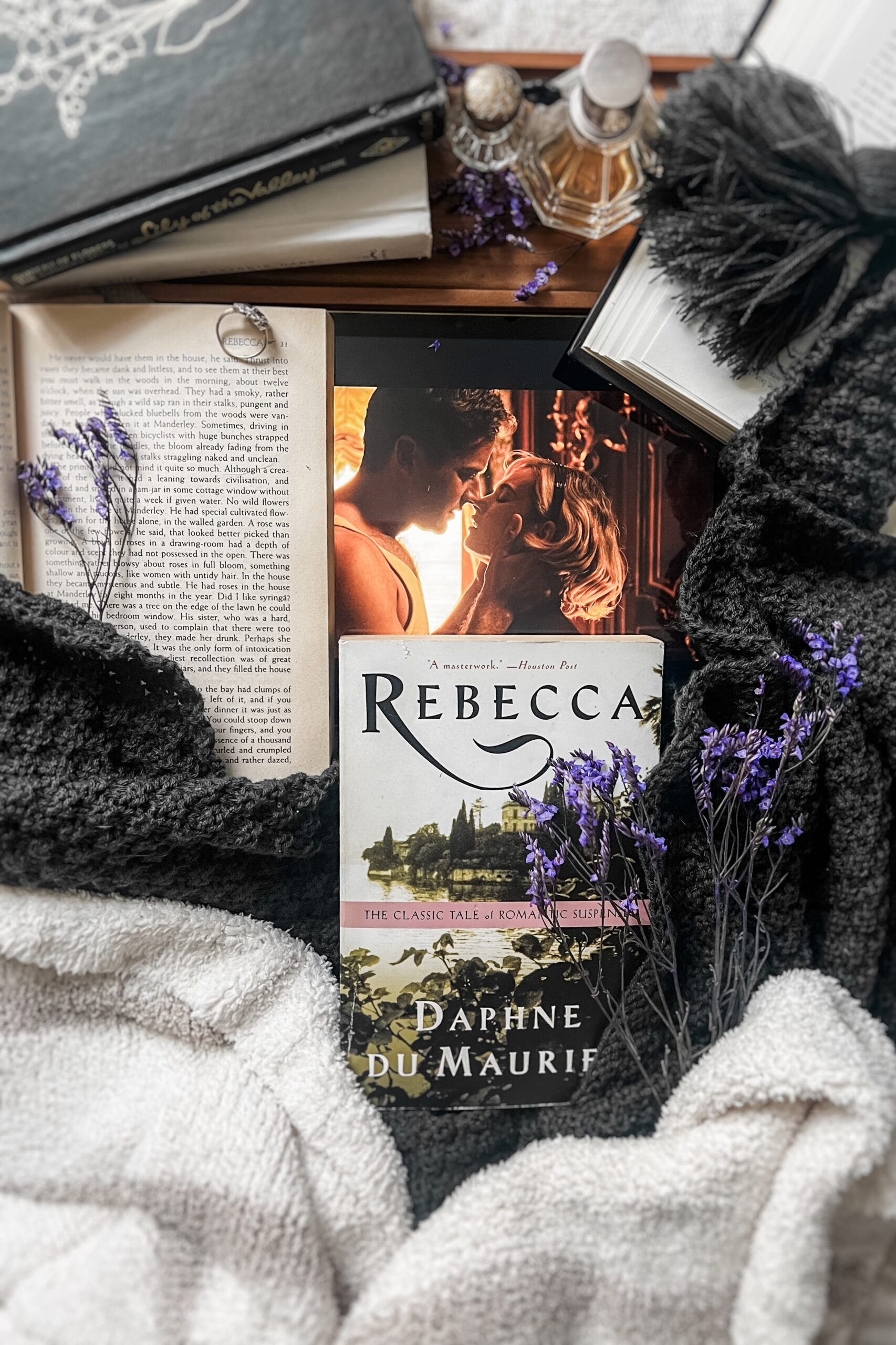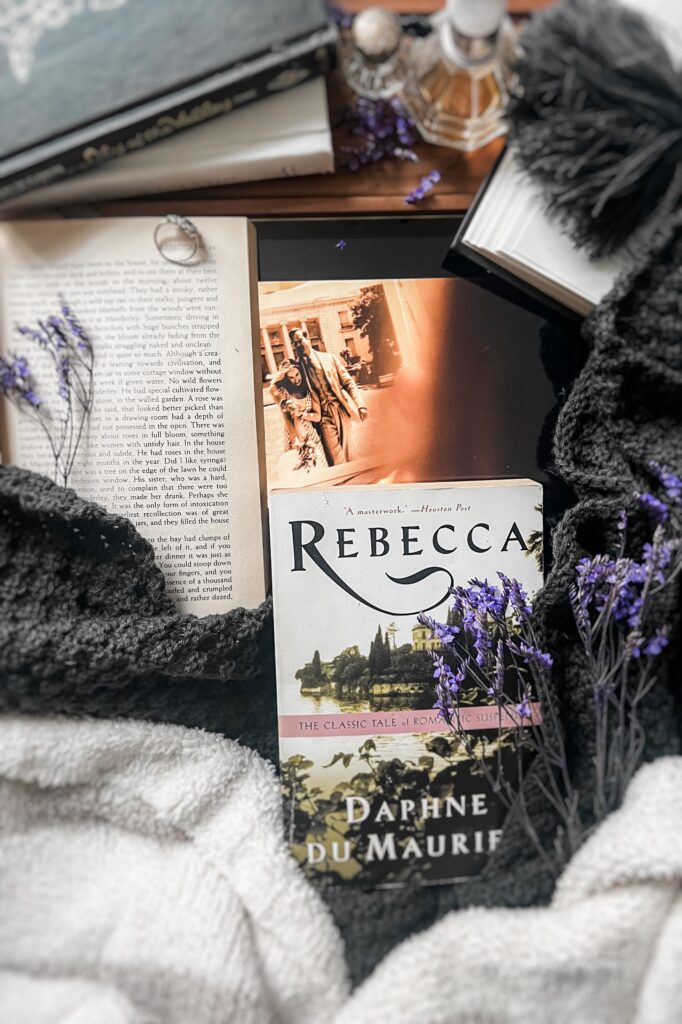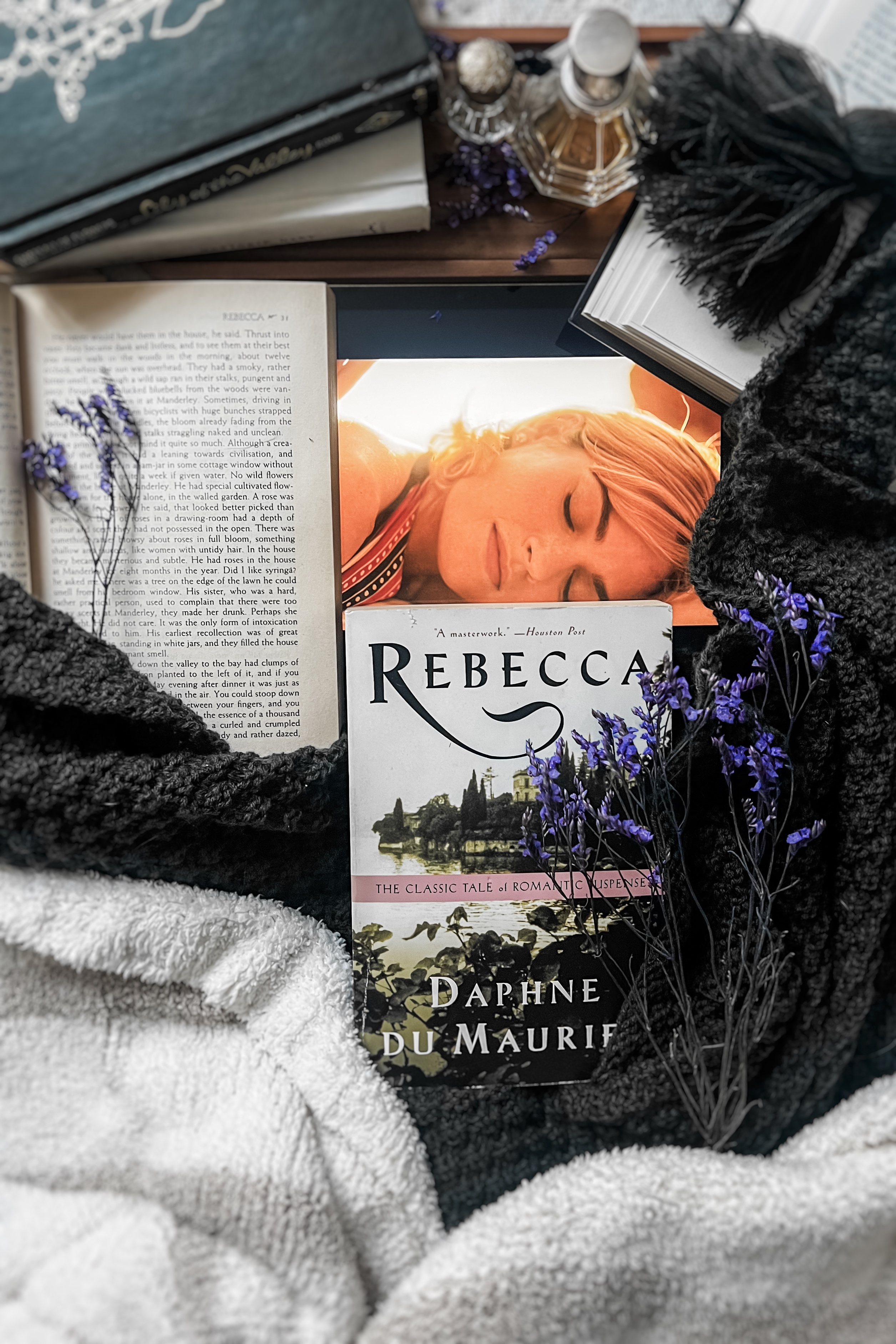
Bottled Memories: Rebecca’s Adaptations from 1940 to 2020
If there’s one thing Daphne du Maurier’s Rebecca has taught me, it’s how memories have a way of lingering, like your favorite scent, and leaving an unmistakable mark on our lives. My love for Rebecca didn’t begin in a book but on-screen with Alfred Hitchcock’s 1940 film adaptation.
I still remember that summer night, completely mesmerized by the monochromatic story playing on Turner Classic Movies. That night (along with the serendipity of discovering du Maurier’s novel in a quaint antique shop years later) marked the beginning of my enduring love affair with this classic tale.
This post could contain affiliate links, which means I would receive a small commission at no cost to you should you shop using the links.
Each time I revisit the story through its adaptations, I see how every version bottles its own interpretation of this hauntingly beautiful tale.
A Quote That Says It All
Above all the gothic glam, there’s one quote from Daphne du Maurier’s Rebecca that always hits home for me. Spoken by the narrator of the story, she says:
“If only there could be an invention that bottled up a memory, like scent. And it never faded, and it never got stale. And then, when one wanted it, the bottle could be uncorked, and it would be like living the moment all over again.”
‘Rebecca’ Daphne du Maurier
This quote perfectly sums up Rebecca—the longing, the nostalgia, the haunting grip the past can have on a person. I’ve always had such a soft spot for nostalgia, even for moments I can’t quite put my finger on. This quote has always spoken to me on a deep, personal level.
So how does this quote hold up in the adaptations?

Bottled Up Memories in 1940
In the 1940 version of Rebecca, this quote is delivered almost verbatim from the book. It’s a light, playful exchange between the unnamed narrator (Joan Fontaine) and Mr. DeWinter (Laurence Olivier) as they’re driving down the road.
It’s all smiles until Mr. DeWinter quickly shifts the mood. He warns her that demons could emerge from those bottles just as easily as sweet memories. This idea mirrors the narrator’s growing doubts about her place at Manderley and her relationship with Maxim.
It’s a classic scene, riddled with anxiety and a deep sense of foreboding.
Romanticized Memories in 2020
Now, in the 2020 Netflix adaptation, the scene takes on a completely different tone. The narrator (Lily James) and Mr. DeWinter (Armie Hammer) are outside, sunbathing together on the sand. The mood is dreamy, intimate, and calm.
As the narrator (James) reflects on bottling memories, DeWinter (Hammer) starts creating a heart with sand on her back. We later see that the sun leaves its mark on her skin, creating a temporary tattoo of the heart—a sweet symbol of their love.
Here’s how the 2020 version goes:
Narrator: Imagine if you could bottle a memory like a scent. Then, whenever you wanted, you could open it. It’d be like living the memory all over again.
DeWinter: And what particular moments in your young life would you bottle?
Narrator: This week. Now. Every minute of it. Never forget it.
DeWinter: And any memories you didn’t want you could simply throw away.
Rebecca 2020
James’ soft and breathy delivery of “never forget it” is so emotional—it pulls you into the moment. DeWinter’s (Hammer’s) response hints at the fleeting nature of perfect moments, but unlike the 1940 version, this scene remains overwhelmingly intimate and romantic.
It’s tender, it’s real, and for me, it’s one of the most memorable moments from this adaptation.

Bottling Fragile Moments
The first time I watched the 2020 remake of Rebecca and heard James deliver this quote, it felt like I was hearing it for the first time. It hit me so hard because I can recall using the idea of bottling time.
I’m sure the idea had been planted in my mind over the years from watching the 1940 film and reading the book, but in that moment, it was like truly hearing the words for the first time and seeing myself in them. The way she whispers never forget it—that desperate longing to hold onto something fleeting, thrilling, yet still so uncertain—felt painfully real.
Because memories, no matter how sweet or how haunting, are fragile.
This change reflects the broader shifts between the 1940 original and the 2020 remake. While the 1940 adaptation and the novel itself dwell in gothic suspense, with an unspoken distance between the protagonists, the Netflix version leans into a more direct, emotional romance.

Gothic Suspense to Straightforward Romance
As a longtime lover of du Maurier’s masterpiece—and an absolute sucker for romance—I appreciate both adaptations. Some argue that the 2020 version dilutes the novel’s eerie atmosphere, but I see it as a different kind of love story, told in a more straightforward way.
It’s less about the shadowed corridors of Manderley and more about those fragile moments of love that exist even in uncertainty.
Whether it’s Fontaine’s quiet anxiety or James’ sunlit vulnerability, Rebecca continues to captivate after all these years. Some stories, some of the best memories, are bottled up in your heart—and you’ll never forget it.

